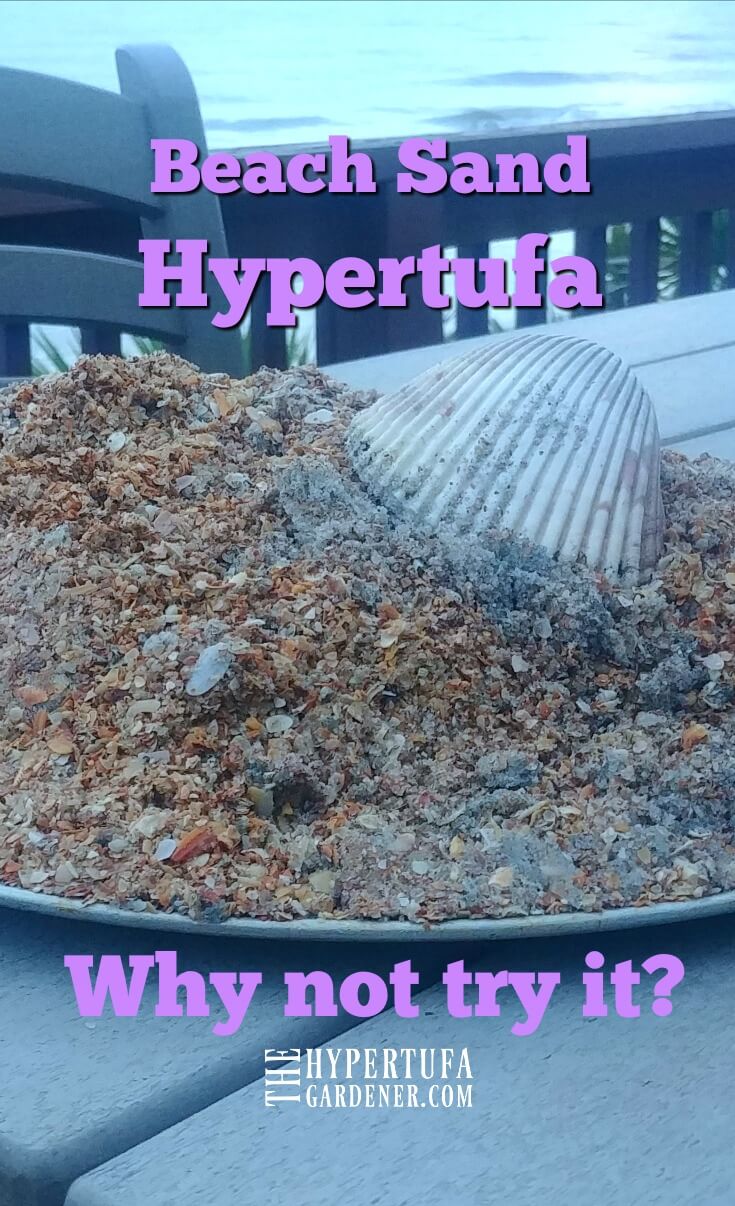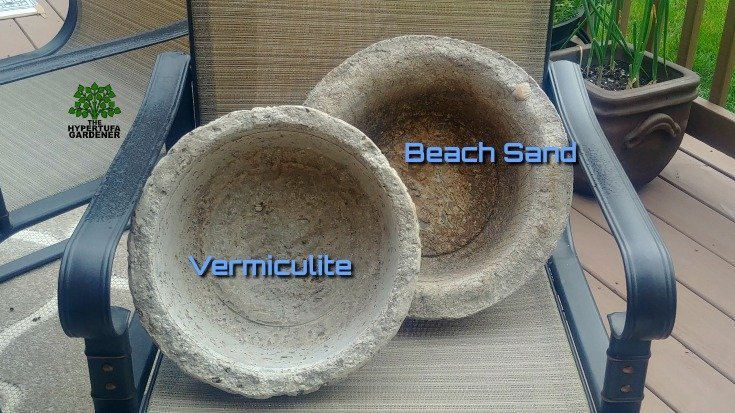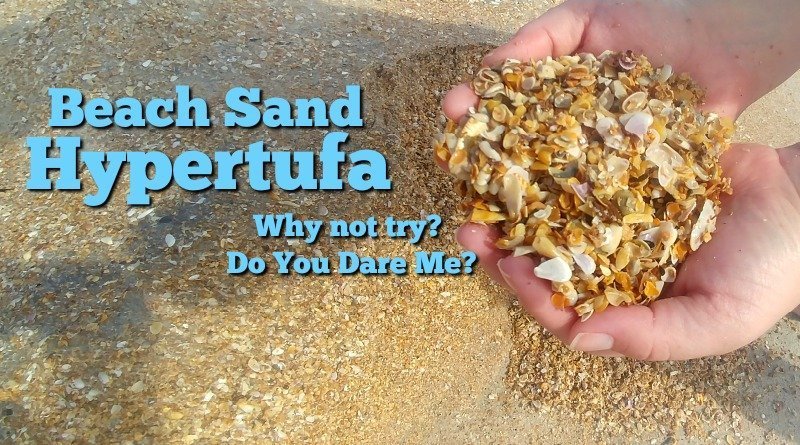My Beach Sand Hypertufa – This Isn’t Supposed To Work?
First of all, you have to understand that I wanted a lasting remembrance of our trip to Florida. As Charles Dickens writes on the first page of “A Christmas Carol”…”This must be distinctly understood, or nothing wonderful can come of the story I am going to relate.” I have heard it said and written many times that you cannot use Beach Sand for Hypertufa. Well, I want to try some experiments and see for myself. Why? How come? Free sand? I can’t use it?
In general, I use vermiculite when I make my hypertufa pieces. But as I said above, the Florida beach sand with its tiny bits and pieces of broken shell was so pretty that I started to question that whole idea about using it for hypertufa. Of course, I haven’t had time for a long range experiment since we just vacationed this summer in July, but why not test the theory and see what happens.
Will it actually “set up” and harden into a hypertufa planter?

Let me tell you, getting that Beach Sand through the TSA screening was a real time-consuming (not to mention nerve-wracking) event. Seems the machines can’t see through sand and we had to be brought aside for them to test it with chemicals. Sorry, my bad!

Beach Sand Hypertufa
I realize from all the reading I have done that the information provided tells us not to use beach sand because of the high sodium content. Sodium Chloride, NaCL, doesn’t seem to be part of the content of sand which is given as … “typically made mostly of varying amounts of material weathered from inland rocks and transported to the beach on the wind or in rivers, and/or shells and other hard parts precipitated out of the ocean water by marine organisms.” https://www.nature.com/scitable/blog/saltwater-science/what_is_sand_made_of/
So then it is because beach sand is rinsed/coated with salty ocean water so it cannot be used? If you rinse it, then can it be used for our hypertufa? But when we use Portland cement, have you even seen anything referring to ” Watch out! The chemical process that sets up cement cannot be done in the presence of NaCL.” I sure haven’t seen that.
I Don’t Want To Rinse Beach Sand
Living in Ohio, I don’t really have access to beach sand to use on a regular basis. But for those who do, I am just curious about the reasons why it is not recommended to use it. As I said before, nothing tells me that the chemical process of curing is compromised in the presence of sodium, so will it set up?
Watch the video. I made the Beach Sand Hypertufa the same way I would any other and it worked!
Sure does. Here is my cured Beach Sand Hypertufa planter and it appears to be the same as all the rest that I have made with vermiculite. I have a very few that I have added regular sand or river sand. But it sure didn’t stop the curing process in any way. Only time will tell about the durability of the project. But then here’s my next question.

Is This Caution Just for Big Construction?
“When Sea Sand is mixed with cement in place of normal River Sand to make concrete for buildings, the high content of chloride in Sea Sand leads to defects in the structure. This composition absorbs humidity which causes erosion and rusting in the steel rods used in reinforced concrete.” Reference: https://isatonsand.com/defining-river-sand/
Based on some of this information, I thought it worth an experiment to see if The Cure gave me a hypertufa planter to start with, and then would it behave in the same manner as other hypertufa pots made with the usual aggregates. Of course, I would leach the project just like I would any ordinary hypertufa piece. And I have no need to worry about the corrosion of the rebar etc. My planter should be OK.
And by the way, wouldn’t my leaching process take away some of the sodium chloride (salt) just like it takes away some alkalinity from my piece?


“Sea sand can be used in concrete when regular sand is not available. The main worry is about the durability related properties as the sea sand has large amount of salts adhered on the its surface. Just water washing may not remove all deleterious materials firmly adhered on to the surface. Pressure washing and chemical washing remove all such materials. Sea sand is some what fine and smooth. It will have influence on the mechanical properties of concrete. For producing low to medium strength concrete, there may not be significant difference in the properties. For special concretes, the river sand should be characterized before use. Chlorine induced corrosion is a main problem. Sea sand has no serious problem in plain and non structural concrete applications.”M. C. Nataraja Sri Jayachamarajendra College of Engineering


